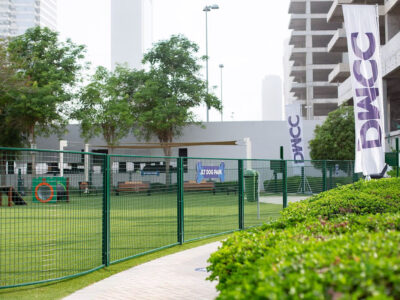Gen Z professionals in the UAE and the world over are increasingly rejecting the traditional notion of working until 60, instead opting for strategic breaks to step away from the relentless corporate grind, calling it “micro-retirement.”
These employees, who often work in tech roles, or as consultants, and creatives have implemented this proactive career strategy, in a bid to support well-being and personal growth.
What is micro-retirement?
“Micro retirement refers to mid-career breaks to support wellbeing, mental health, or simply to enjoy life – rather than waiting for formal retirement at 60,” George Sames, Managing Director at Oneira Talent Solutions in Dubai told Arabian Business.
However, unlike a traditional career break, Dubai-based career expert Zeta Yarwood explained that micro-retirement is “intentional.”
“Unlike a career break, which is often reactive — due to burnout, redundancy, or caregiving — micro-retirements are proactive and planned. They’re about stepping away from work to focus on personal growth or pursuing interests, to then return to your career refreshed and recharged. It’s less about ‘pausing’ your career and more about integrating periods of rest and reflection into your working life,” she said.
Micro-Retirement: Inside the new work-life balance trend
The concept of micro-retirement is gaining traction due to shifting attitudes toward work-life balance, particularly among younger generations.
“Gen Z’s mindset and approach to work is very different than their Millennial predecessors. They question traditional full-time employment as early as their first job. They don’t look forward to succumbing to the corporate rat race for years on end. They are creative and resourceful in finding ways to be financially independent so they can design a life that works for them. Rise in mental health awareness, need for work-life integration, growing gig economy and having social media platforms to express and share their beliefs are factors that have given birth to the micro-retirement trend,” Dubai-based career coach and founder of Unwind the Grind Samia Hasan said.
Unlike sabbaticals, where employees typically return to the same role and employer, micro-retirements are more flexible and independent, she added.
The COVID-19 pandemic has further accelerated this shift. “People’s values have shifted towards well-being and work-life balance, rather than job security and hustle, especially post-COVID,” Yarwood said, adding “Burnout is rife and people are realising our current hustle culture is unsustainable.”
Oneira’s Sames identified mental health awareness as another key driver. “Mental health and wellbeing is likely to be a driving force. As the world has become more aware of the importance of wellbeing, trends like micro-retirement have popped up.”

Plan financially when you micro-retire at work, say UAE career experts
However, while the idea of taking periodic breaks is appealing, experts stress the importance of financial planning to ensure a smooth return to work.
“Just as you might build a ‘travel fund’ or a ‘fun fund’ into your financial planning, building micro-retirement funds can help mitigate any potential risks of regular micro-retirements,” Yarwood advised.
She recommended maintaining a strong professional network and ensuring skills remain up to date. “Consistently expanding and nurturing your network to keep it engaged, developing yourself and your skills, and keeping your CV and LinkedIn profile up to date can ease your return to your career without losing traction. Aligning micro-retirements with natural transitions such as the end of a project or contract can help minimise disruption too.”
Echoing the sentiment, Hasan recommended a comprehensive financial strategy. “Start off by calculating the amount of money needed during the micro-retirement phase, depending on your goals, as well as an emergency fund of one year post-micro-retirement. Next, identify how this money will be generated through your financial planning. How will you make your current savings work harder for you? How to gain knowledge about the various investment options? What is your risk appetite, time horizon, and how active or passive you want to be within those asset classes?”
She recommended seeking financial expertise to build a diversified portfolio. “Determine the amount of time needed to generate funds for your micro-retirement while reassessing goals and needs, as you see fit.”
Sames also underscored the importance of a solid financial base. “Have a solid financial base, which you need to calculate carefully based on how long you’ll spend not working. If that is three months, ensure that you are in a financial position to support yourself for that entire time, without having to constantly worry about a lack of income.”

Not all employees in different sectors can micro-retire
However, not all sectors offer equal opportunity for micro-retirement, experts said, adding that there are clear divisions between industries where such breaks might work and those where implementation presents challenges.
“Micro retirement is definitely suited better to specific roles or industries. Typically, it is easier if you are with a larger business that has the resources and people to support your workload whilst you’re away, and much more difficult if you are part of a small team. Micro-retirement is not really a trend within the financial services industry, as the nature of the markets requires constant attention from team members,” Sames said.
In addition, Yarwood explained “Industries with flexible work structures — like technology, consulting, creative roles, and academia — are often better suited to micro-retirements. Freelancers and contractors also have greater autonomy to manage breaks.
“On the other hand, people in roles with fixed cycles, constant physical presence or urgent demands — such as healthcare, law enforcement, or high-pressure professional services roles — may find it harder to implement. However, even in these sectors, companies can explore flexible options like sabbaticals, job shares, or rotational models to enable micro-retirements,” she added.
Despite this, employers are “not in the least” becoming more open to structured career breaks, according to Unwind the Grind’s Hasan.
“Most organisations still fall under the conventional realm of full-time, always-on employment with the intent of helping you grow in your role and in the company for business continuity and stability. Micro-retirement disrupts it all. It makes employers plan for structured career breaks by having a clear policy in place and ongoing succession planning to ensure business continuity,” she said.
Moreover, organisations display varying levels of receptiveness to micro-retirement concepts. “Tech businesses lead the way here. They are constantly looking to additional ways to benefit and retain their employees, as the talent market has become increasingly competitive,” Sames said.
However, Yarwood believes progressive employers are recognising that structured breaks can improve employee well-being, engagement, and productivity.
“Companies that embrace this trend often see stronger retention and higher job satisfaction. However, we’ve entered an age of instant gratification and perfection, expected at the lowest price. This puts a huge strain on company resources, with many people complaining they’re doing the job of two people, struggling to take their paid leave, let alone negotiate and be granted a micro-retirement. While it’s a nice idea, the reality is that many companies have yet to strike a balance between managing consumer and client demands and meeting employee needs,” she said.

So, what is the best way to micro-retire?
And while micro-retirement offers many benefits, it is not without risks.
“Done well, micro-retirement can significantly boost productivity and engagement. Employees return to work feeling re-energised, often bringing fresh ideas, skills, and perspectives,” Yarwood explained.
Sames also sees strategic advantages for employers. “Employee engagement and retention can benefit massively from an initiative like micro-retirement. As a very new trend, early adopters will likely gain excellent publicity.”
Employees can also achieve personal development gains, according to Hasan. “This would include a self-starter mindset knowing how to create something from nothing; whether it’s about growth mindset, goal setting, creativity, skill-building, planning or discipline.”
Despite it all, micro-retirement still carries risks that require mitigation with skill depreciation ranking among top concerns.
“Skills can become outdated if employees fully disengage from their field. The key is to stay connected — through networking, online learning, or side projects — to ensure skills remain sharp,” Yarwood warned.
There are also a few psychological aspects to be considered. “The biggest risk is if micro-retirement is over-idealised and not well thought through on the employee’s part. After the initial high of freedom wears off, they might not know what to do with themselves.”
In addition, re-entry challenges present another significant risk. “Re-entering the workforce, especially after a prolonged break in a traditional corporate environment would not be a walk in the park,” Hasan cautioned.
However, whether micro-retirement represents the future of work or a passing trend remains to be seen, but it undoubtedly reflects changing attitudes toward career longevity and work-life integration, according to experts.
“This really depends on time out of the market. If you’re out for a month or two, it’s likely not a major issue (depending on what you do of course). If it’s 6 months or more, you may face difficulty coming back into the workplace,” he said, concluding that micro-retirement is not a “sustainable trend.”








